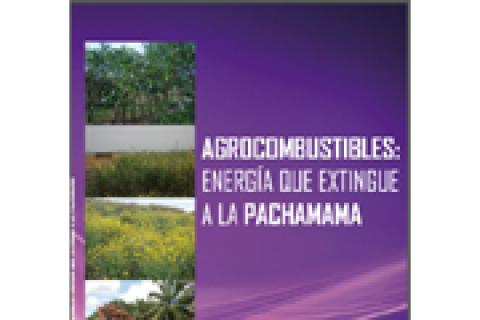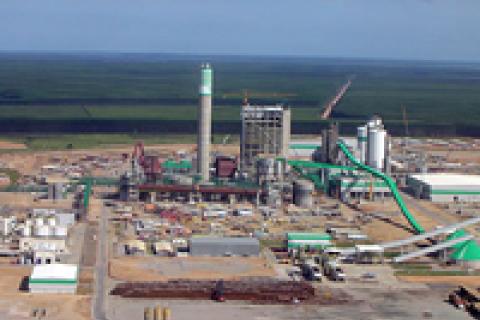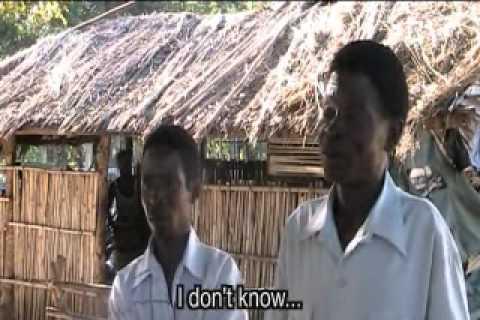Les plantations industrielles d’arbres ont souvent avancé grâce à l’expropriation directe ou à l’achat manipulé de terres. Pourtant, cette expansion se produit aussi, de façon indirecte, grâce à un troisième mécanisme, moins connu mais probablement au moins aussi important que les deux autres : les situations d’endettement. Ce court article a pour but de commencer à éclairer ce problème, en mettant l’accent sur la plantation commerciale d’arbres en Indonésie.
Au niveau du petit planteur
Les autres informations
Dans le Sud-Est de l’Afrique, le Mozambique brille comme un joyau sous le soleil africain.
Le littoral s’étend sur des milliers de kilomètres, riche de vie grâce à la tiédeur de l’océan Indien. Des requins-tigres et des requins du Zambèze patrouillent les récifs coralliens grouillants de sons, en un spectacle sous-marin où pullule une grande variété de poissons de couleurs, de raies et de tortues. Moules, crabes, crevettes, langoustines, toutes ces riches ressources alimentaires sont disponibles au Mozambique et ont nourri ses habitants pendant des milliers d’années.
Le palmier à huile occupait au Bénin une place importante historiquement. Il a fait l’objet d’un développement plus volontariste à partir du règne du roi Ghézo, que l’on situe entre 1818 et 1858. Les pays occidentaux devenaient en effet de plus en plus demandeurs d’huile de palme, principalement pour alimenter leurs savonneries, et les deux principaux royaumes que comprenait le Bénin à l’époque (Abomey et Porto-Novo) développèrent leur offre pour répondre à cette demande.
Por Elizabeth Bravo y Nathalia Bonilla.
Las nuevas políticas de agrocombustibles en el Ecuador - Setiembre 2011
Download as pdf
Estimad@s amig@s,
A continuación l@s invitamos a apoyar la siguiente acción en el marco de las acciones por el Día Internacional de Lucha contra los Monocultivos de Árboles.
Dicha acción está siendo coordinada por nuestros amigos de CEPEDES en Brasil quienes desde hace muchos años están apoyando y contribuyendo en la articulación de la resistencia al avance de la plantaciones de eucaliptus y la fábrica de celulosa de la empresa Veracel Celulose.
Varias organizaciones, Brasil, Setiembre 2011.
Solo disponible en portugués -
Leer la carta aquí
Faltan pocos días para el 21 de Setiembre! Encontrarán mas abajo en este mensaje la tercera acción que queremos proponerles, que se origina de una demanda de nuestros amigos de Geasphere del Sur de África, en el marco del Día Internacional de lucha contra los Monocultivos de Árboles.
Le 21 septembre, Jour international contre la monoculture d’arbres, n’est pas loin maintenant et nous continuons de travailler à recueillir des avis, des expériences et des témoignages qui rendent compte de la richesse de la vie de la forêt, si éloignée de l’uniformité stérile des plantations industrielles d’arbres.
Les mythologies, les légendes et les contes sont une source inépuisable de connaissances et d’observations collectives, qui recueille les éléments essentiels et symboliques de tout ce qui est significatif pour l’être humain.
Solo disponible en inglés -
By the NGO Forum on Cambodia - Final Report.
Field Investigations in Koh Kong, Kampong Speu, Pursat, Kampong Chhnang, Mondolkiri, Prey Veng and Svay Rieng Provinces.
Download full document as pdf
Les villages tribaux de Surma et de Golbojhi ont célébré leur libération le 1er mai, jour international du travail. Après 107 années de lutte, leurs habitants ont obtenu la propriété des forêts dont ils ont été tributaires des siècles durant. Habités par quelque 450 familles de la tribu Tharu, ces deux villages forestiers sont situés au cœur du parc national Dudhwa, dans le district de Lakhimpur d’Uttar Pradesh (U.P.).
Des femmes sud-asiatiques qui travaillent dans les domaines de la santé, de la nutrition, de la subsistance et de l’environnement se sont réunies à Dhaka, au Bangladesh, les 2 et 3 juillet 2011, à l’occasion de la Troisième Conférence annuelle du SWAN (South Asia Women’s Network, Réseau des femmes sud-asiatiques) dont le thème était « Les femmes sud-asiatiques et l’économie verte ».
Por Guadalupe Rodríguez, Salva la Selva.
Pagination
- Première page
- Page précédente
- …
- 66
- 67
- 68
- 69
- 70
- 71
- 72
- 73
- 74
- …
- Page suivante
- Dernière page






